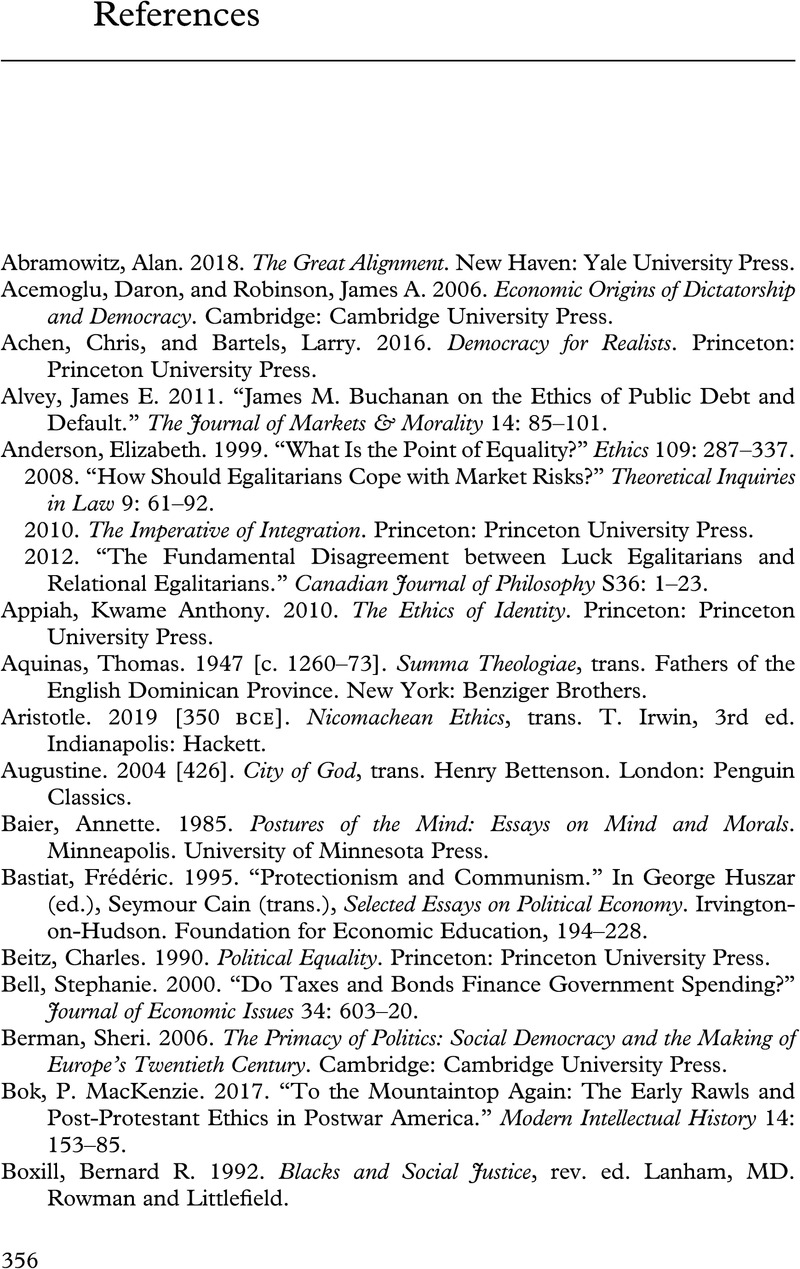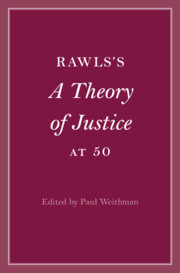Book contents
- Rawls’s A Theory of Justice at 50
- Cambridge Philosophical Anniversaries
- Rawls’s A Theory of Justice at 50
- Copyright page
- Dedication
- Contents
- Figures
- Contributors
- Acknowledgments
- Abbreviations of and Bibliographic Information for Rawls’s Works
- Introduction
- Part I Rawls and History
- Part II Developments between A Theory of Justice and Political Liberalism
- Part III Rawls, Ideal Theory, and the Persistence of Injustice
- Part IV Pluralism, Democracy, and the Future of Justice as Fairness
- References
- Index
- References
References
Published online by Cambridge University Press: 20 July 2023
- Rawls’s A Theory of Justice at 50
- Cambridge Philosophical Anniversaries
- Rawls’s A Theory of Justice at 50
- Copyright page
- Dedication
- Contents
- Figures
- Contributors
- Acknowledgments
- Abbreviations of and Bibliographic Information for Rawls’s Works
- Introduction
- Part I Rawls and History
- Part II Developments between A Theory of Justice and Political Liberalism
- Part III Rawls, Ideal Theory, and the Persistence of Injustice
- Part IV Pluralism, Democracy, and the Future of Justice as Fairness
- References
- Index
- References
Summary

- Type
- Chapter
- Information
- Rawls’s A Theory of Justice at 50 , pp. 356 - 371Publisher: Cambridge University PressPrint publication year: 2023



